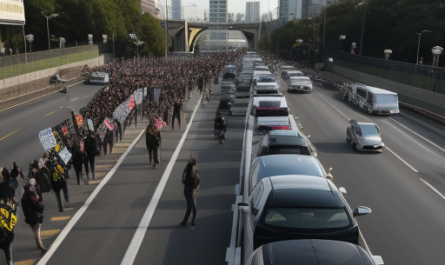
Contrary to what you’re lead to believe, the election of a President is not decided on election night by news anchors with big screens contacting election headquarters. In fact, President-Elect Obama just won the election January 8, 2009. The vote was 365 to 173 in favor of Pres-Elect Obama over Sen. McCain.
The Electoral College and Direct Election
The framers of our Constitution built into our system of election the idea of an Electoral College to protect our electoral process. Indeed, I have read that it was never fully the intention of the framers to have elections like we have today—where there are basically two viable candidates that square off for the popular vote.
The system that is in place for the House and Senate to choose the President and Vice President should no one get the majority of electoral votes was envisioned to be the common route to the Presidency!
Should We Keep the Electoral College?
Every Presidential election (especially since 2000) we have seen someone calling for the abolishment of the electoral college in favor of a direct vote. Though this would definitely change how candidates campaign, it would also gloss over the reasons behind the system that we have.
How would it change the way candidates would campaign? No small state would see a candidate, whereas now it’s mostly the some of the larger states (like California, New York, and Texas) that never see the candidate. It would concentrate campaigning in metropolitan areas where the most votes would be had. It would also lend itself, even more (if you can believe it) to pandering and offering to throw money in all different directions.
So, Why Keep It?
Good question. The reason that it is there in the first place is as a buffer. People in good standing were supposed to be chosen as a check on Democracy. You see, the Founders knew something that we don’t tend to think about today. They understood mob morality, and that groups can be persuaded to choose something that isn’t the best.
Therefore, they needed to trust that if the people made a poor choice, the electors could fix it—the electors should elect based on their conscience.
Today, electors are chosen not for character or standing in the community, but for their affiliation with one of the major parties. Defections are rare, because they’re pledged partisans.
So, should we keep it, because of it’s original purpose, should we attempt some kind of reform, or face the facts that it’s broken and people don’t want it fixed?
![Reblog this post [with Zemanta]](http://img.zemanta.com/reblog_e.png?x-id=8b5680c9-775e-4885-bacc-e10a8283b078)

Problem here is that no one trusts the electoral college to do the right thing, in case they’re required to step in. That kind of takes away the very purpose of their existence. Direct elections have their own problems, like you say, but its still a better option than the current sustem, where things like the Florida chads can reverse the popular vote.
@Ling: Everyone plays by the rules of the game, and the rules of the game (up until this point) are that the popular vote doesn’t mean anything, it’s the number of electoral votes. Regardless whether Al Gore won the popular vote in 2000 or not, that wasn’t the name of the game.
Now, as for whether the popular vote is something that we should base the selection of the President on, that also scares me. Why? Just look at what has happened in each of these close elections. Look at what’s going on Franken/Coleman election. We don’t know the exact numbers of votes in that race– it’s still being decided. And you can bet that if the numbers are wrong in that race, that there are many races that aren’t close, but that the numbers are wrong there.
Being a Comp Sci guy, it scares me to think that there are many places where there’ll be no recounts because the data was pretty well in favor of one or the other, but if you multiply that across the country, you could only truly believe the numbers if if there were a landslide. Could you imagine nationwide challenges to votes because they’re not sure who did get the popular vote?
And then from a more philosophical standpoint: What does it mean to be “The United States” if we have direct elections of people to serve? Technically, we’re people that belong to states that belong to a Union. There is a federal principle aligned with the creation of our government that (regardless of whether it’s been watered down) that says that our states have rights. The right to have representation and to choose the President has always resided with the state, not the individual. Technically (and correct me if I’m wrong), the state legislature has the right to choose the electors for President– we don’t need a vote of the people at all. It’s just that all the states have elections. Again, it may just be that the states have to dictate how an election must be carried out, but even then I think that they could dictate that they have the right to decide.
Direct democracy leads to anarchy and destruction of society. If we don’t learn from the past we’ll soon repeat it.